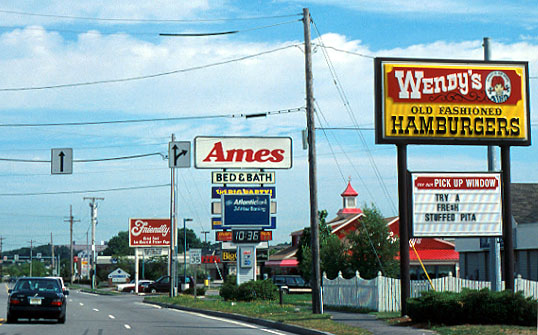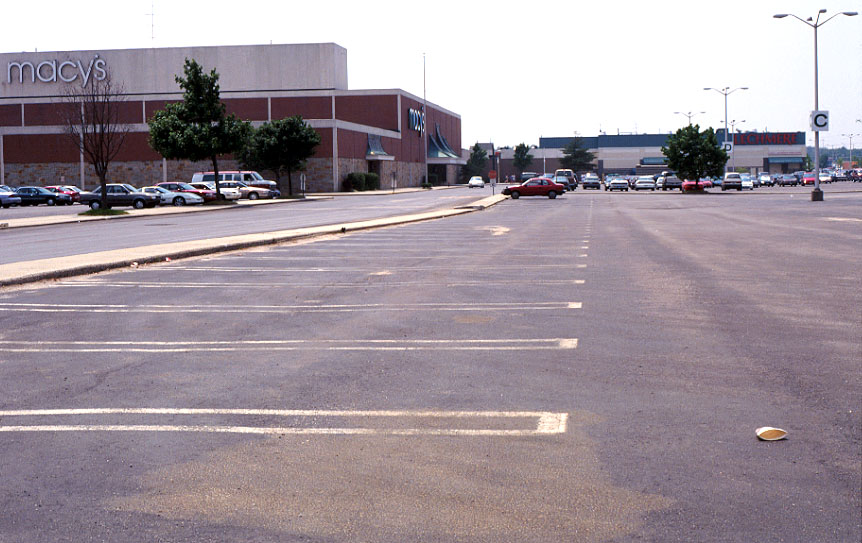Being geographically unfettered has its rewards, however. Most important, this placeless culture has opened vast territories for individual exploration and opportunity; provided an abundance of products, from Italian plastics to Chinese produced films; and created a whole new universe of easily accessed information.
But in the midst of all that possibility, that longing for 'a sense of place' still gnaws at us. Preservationists and historians work to protect what's left of it; developers and planners try to conjure it anew. Nevertheless it continues to elude. Conservation efforts typically transfigure the charming into the quaintly commercial. For fear of spoiling the tried-and-true, contemporary architectural interventions are shunned, as are innovative zoning plans that might encourage new businesses.
Although this resitance to change can turn towns into lifeless museums, it is not without logic. As a culture we seem utterly inept at creating 'real' places -- perhaps, because we are so removed psychologically from our surroundings.
We've failed to accept that the old definitions of place no longer apply; place is now as much virtual as it is physical.
As contrived as it may be, the mall outside the storefront studio of NBC's Today Show at Rockefeller Center, where its fans gather each morning, has become must as much a part of some viewers' everyday geographies as their own neighborhoods -- possibly the most vivid part. Our notion of place, then must be reinvented. It needs to embrace the 'metaplace.' But it also has to be grounded in physical place, and our own role in that place.
"Land is an amalgam of history, culture, agriculture, community, and religion, incorporating microcosm and macrocosm," writes Lippard. She's right, but maybe a little too lyrical. That history and culture and culture includes strip malls, toxic waste dumps, blighted neighborhoods, 14-lane highways, abandoned factories, neglected peoples.


If we are at last to create a contemporary sense of place, we might say of 'rootless rootedness,' we need to acknowledge the ugly as well as the beautiful, the disturbing as well as the cozy, the virtual as well as the real. It is this totality that today constitutes the 'here.' As Lippard contends: "Place continues as an absence to define culture and identity. It also continues as a presence to change the way we live." (Bartolucci 1997, 60-1)